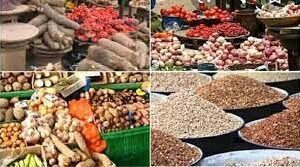Minister of Agriculture and Rural Development, Dr.AkinwumiAdesina, has stated that the major reason for high rural poverty and malnutrition in Africa is the poor performance of agriculture, the main source of livelihoods for majority of the poor.
He said for too long, agriculture has been treated as a development sector, as a way to manage, not eliminate, poverty.
Adesina stated this recently while delivering a keynote address during the 2nd Global Conference on Biofortification, in Kigali, Rwanda.
He said malnutrition, especially lack of essential minerals and vitamins pose major challenges in African countries.
“It is estimated that twelve Africans die every minute as a result of hunger and malnutrition. Almost 240 million people in sub-Saharan Africa do not eat well enough for their health and well-being. Africa has the highest prevalence of undernourishment in the world afflicting almost one in four people. 80 percent of the world’s stunted children live in just 14 countries, of which eight are here in Africa.”
He said for Africa to succeed in lifting millions out of poverty, and create a model of shared prosperity, it must focus on transforming its rural economies and that the way to do this is to transform agriculture.
Adesina suggest eight major issues that must be addressed for bio-fortified crops to go to scale.
“Africa is leading the world in the cultivation of bio fortified crops. Of the 1.5 million farming households now growing bio-fortified food crops, 1.4 million are in Africa. Another 1 million African farming households will be added this year.
“African countries need to significantly invest in scaling up food and nutrition and devote at least 3% of the GDP on food nutrition interventions. This should support conditional cash transfer programs for millions of women, especially, linked to school enrolments, prenatal care, vaccination for children and adherence to infant and child nutrition prescriptions.
“Africa must look inwards and take advantage of its own crops and private sector to produce all the high energy foods it needs. Nigeria has engaged with the World Food Program to turn this around. Our goal is to become the largest producer of high energy foods in Africa,” he said.



